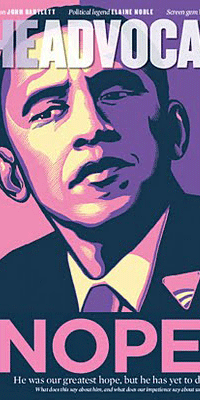If we were to do a report only on Brazilian gay rights achieved in 2009, we would have to leave this page blank. Because gays, lesbians, transvestites, transsexuals and bisexuals still cannot enter into civil unions or marriage, they cannot donate blood, they cannot adopt jointly, in short, LGBT people still cannot do anything, except pay taxes, and rely on jurisprudence from sensitive judges regarding developments in the issue of gay rights around the world.
PLC 122, which aims to criminalize homophobia in Brazil, completes three years of processing. Just won new text and next year it should be voted on in the Federal Chamber of Deputies. It should be noted, as the group of religious parliamentarians will do everything they can to sink the bill. Not to mention that the group opposing gay rights has the help of a disorganized and divided LGBT activism.
The bill that provides for civil unions between people of the same sex, by then federal deputy Marta Suplicy (PT-SP), is about to complete 15 years in the drawer. Even with a new text from deputy Genoino (PT-SP), the project is not progressing and things only remain with good intentions and statements like the one by President Lula when launching the new Human Rights plan.
Marta Suplicy herself was emphatic when stating in interview to the website The Cape that “Brazil was already a pioneer in gay issues and today it is one of the most backward”. And, while the country goes backwards, our brothers Uruguay, Argentina, Paraguay and more recently the Mexico, already guarantee gay civil unions. Uruguay stands out today to guarantee full rights to the LGBT community.
If in South America, with the exception of Brazil, gay issues are moving forward, the United States is experiencing an impasse in the face of the Obama administration's rigidity. Received warmly by the American gay community, as soon as he came to power, he presented a plan focused on gay issues, highlighting two: the end of the “Don't ask, don't tell” policy, which prohibits homosexuals from serving in the Forces Armadas, and the repeal of the “Defense of Marriage Law” which establishes that this union is possible only between a man and a woman r. Two promises still unfulfilled.
r. Two promises still unfulfilled.
Unlike the Brazilian gay movement, LGBT activists in the United States decided to send a message in the face of the Democratic government's slowness in dealing with gay issues and organized a National March to the door of the White House to warn that they will no longer wait and that they may even to break with the Obama administration. The gay magazine “Advocate” even did a special report where the headline was “Nope?” (Nothing?, in Portuguese) in pure irony with the presidential campaign of Barack Obama, who sold himself as hope for the North American people.
But not everything is darkness. 2009 was marked by numerous countries approving gay civil unions, such as Portugal and Mexico City. Chile, a country that emerged from the dictatorship in the 90s and is more sexist than Brazil, is having a strong debate about marriage, see the latest presidential campaign where all candidates, progressive and conservative, addressed the issue publicly.
The approval of civil unions is imminent in Argentina and will be voted on at the beginning of 2010, it is worth remembering that it already has the support of Christina and Néstor Kirchner. And who would have thought, even the general and president of Venezuela, Hugo Chavez, stated be against homophobia. In the same vein followed Hilary Clinton. Lastly, Albania and Sweden also approved gay marriage.
To close, let's return to Brazil. 2009 marked the first year after the First National LGBT Conference. At the meeting, more than five hundred proposals were withdrawn with the aim of guiding the needs of this population to the Federal Government. Later, the National LGBT Public Policy Plan was launched, considered "unenforceable" by some historical leaders of the gay movement. Specifically, we had the launch of the National Coordination of LGBT Public Policies, which in the hands of Mitchelle Meira will be the body for implementing some of the policies withdrawn at the National Conference.
With elections next year, may 2010 be gayer in the world of politics!



